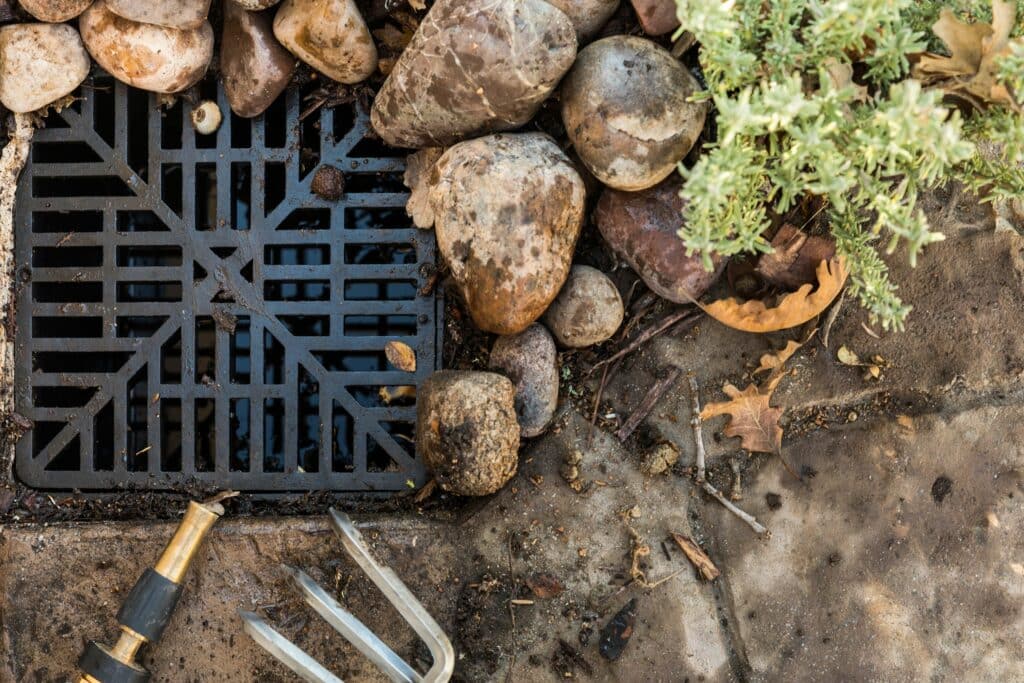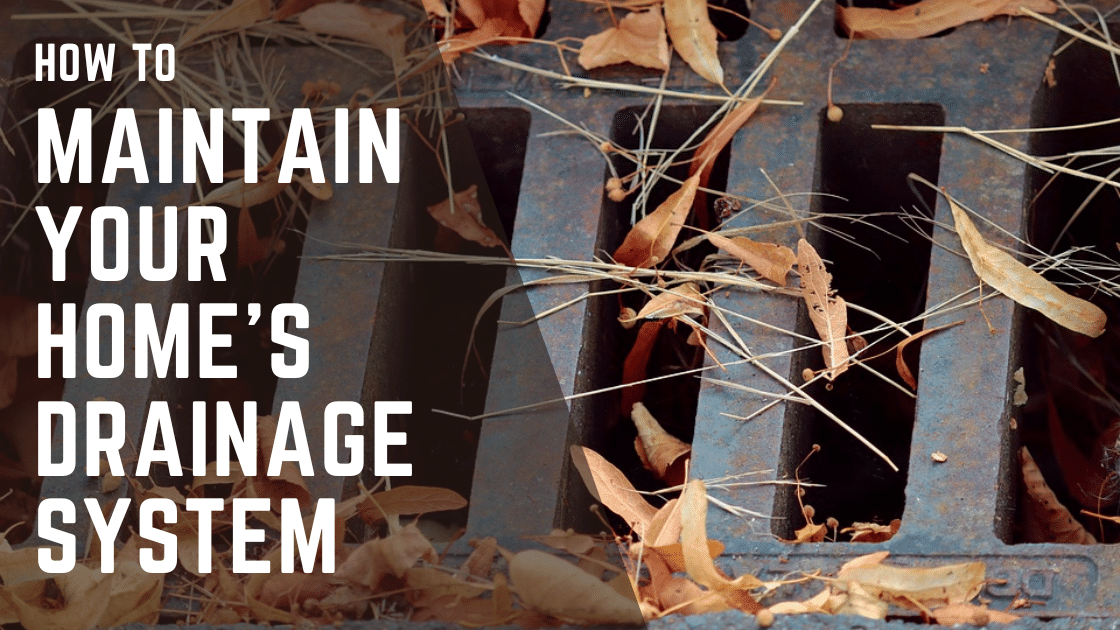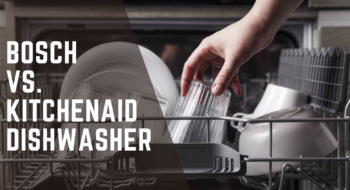Published by Ahmad Jamal on April 18, 2023
Any home’s functionality depends on keeping its drainage system in good working order. Leaks and clogged drains can seriously harm your property and even harm your health if improperly maintained.
However, maintaining a top-notch drainage system doesn’t have to be complicated or time-consuming. Simple advice and techniques we’ll provide in this CleanersAdvisor guide will help you master How to Maintain Your Home’s Drainage System, and avoid typical drainage issues and guarantee that your system functions properly for years.
We’ll provide some helpful tips in this post on managing your home’s drainage system and avoiding pricey repairs. This article is a must-read for anyone looking to maintain their home’s drainage system in top condition, whether you’re a novice or seasoned homeowner.
- 11 Ways to How to Maintain Your Home’s Drainage System
- Pour Hot Water Down Drains Regularly
- Avoid Putting Grease Down the Drain
- Install Drain Screens To Catch Debris
- Schedule Regular Plumber Inspections
- Don’t Flush Non-toilet Paper Items
- Fix Leaks Promptly To Prevent Damage
- Use Plunger To Unclog Drains
- Avoid Planting Near Drainage System
- Don’t Pour Chemicals Down the Drain
- Use Drain Snake To Clear Clogs
- Dispose Of Food Waste Properly
- Conclusion
11 Ways to How to Maintain Your Home’s Drainage System
Pour Hot Water Down Drains Regularly
The drainage system in your home can be kept in good condition by routinely pouring hot water down the drains. In order to avoid blockages and jams, hot water aids in breaking down and flushing away any accumulation or debris in your pipes.
Additionally, it aids in maintaining the cleanliness of your pipes, lowering the possibility of odors or bacterial growth. By incorporating this into your routine, you can maintain the efficiency of your drains and avert future expensive repairs.
It is only a few minutes of your time and is a simple, economical solution and the first step towards mastering How to Maintain Your Home’s Drainage System.
![How to Maintain Your Home's Drainage System: 11 Most Effective Ways [2023 Guide] 2 How to Maintain Your Home's Drainage System](https://cleanersadvisor.com/wp-content/uploads/2023/04/home-sewer-system-640w.webp)
Avoid Putting Grease Down the Drain
Maintaining your home’s drainage system requires not pouring grease down the drain. Your pipes may easily get blocked or clogged due to grease solidifying. Backups brought on by these obstructions may be both annoying and even harmful to your health.
Instead, it’s preferable to properly dispose of grease and other fats by emptying them into a container that can be sealed and tossing the container in the trash.
To stop extra grease from going down the drain, it’s also a good idea to scrape plates and cookware into the garbage or compost container before washing them.
Avoiding throwing grease down the drain will save you money on repairs and guarantee that your home’s drainage system is in great shape for many years to come.
Install Drain Screens To Catch Debris
Maintaining your home’s drainage system is simple and effective when drain screens are installed. Hair, soap, food particles, and other microscopic material that can clog and obstruct your pipes are caught by drain screens.
You may lessen the possibility of backups and sluggish drains by keeping these items out of your drain. Drain screens are a sensible choice for any homeowner because they are inexpensive, simple to install, and need little upkeep.
To maintain your drains functioning properly, simply remove the screen, clean it frequently, and return it. Following these simple instructions, you can keep your home’s drainage system in excellent shape for many years and avoid expensive repairs.
Schedule Regular Plumber Inspections
A proactive strategy to maintain your home’s drainage system is to schedule routine plumbing inspections. Professional plumbers can spot possible problems before they worsen, saving you money on costly repairs and preventing water damage to your property. Hence, when getting your home drainage fixed, you can definitely call a professional.
A certified plumber will inspect your pipes, fixtures, and appliances to look for leaks, corrosion, and other signs of wear and tear. They might also inspect the sewer lines for damage or obstructions. A smooth and effective drainage system in your home can be ensured with regular plumbing inspections.
Schedule an inspection at least once a year or more regularly if you live in an older house or observe any warning signals like slow drains or strange odors.

Don’t Flush Non-toilet Paper Items
Flushing non-toilet paper products has the potential to seriously harm your home’s drainage system. Unlike toilet paper, which decomposes in water, other products like paper towels, wipes, feminine hygiene items, and even dental floss do not.
Instead, they could build up in the pipes, causing obstructions and clogs. Backups brought on by these obstructions may be both annoying and even harmful to your health.
It’s critical to remember that the only things that belong in the toilet are human excrement and toilet paper. Avoiding flushing objects other than toilet paper will save you money on repairs and ensure that your home’s drainage system is in great shape for many years to come.
Fix Leaks Promptly To Prevent Damage
For the drainage system in your property to remain in good condition, leaks must be fixed quickly. Even little leaks can cause major harm over time, including mold growth, water damage, and elevated power costs.
Neglecting leaks can potentially result in more serious issues like ruptured pipes and flooding. Therefore, acting as soon as you discover a leak and having a qualified plumber fix it is crucial. Leaks may be quickly fixed to save money on repairs and shield your house from potential water damage.
Additionally, it’s smart to arrange routine plumbing inspections to find any potential leaks before they worsen. By taking these preventative measures, you can ensure that your home’s drainage system has been in great shape for many years.
Use Plunger To Unclog Drains
Maintaining your home’s drainage system is easy and effective when you use a plunger to unclog drains. Plungers produce suction, remove obstructions, and allow water to flow freely through the drain.
Remove any standing water from the sink or bathtub before using the plunger. Position the plunger over the drain and press down firmly and quickly to create suction. Till the obstruction is removed, carry out this procedure multiple times.
Chemical drain cleaners should not be used since they might harm the environment and your pipes. If the plunger doesn’t work, contacting a qualified plumber for more help is recommended.
Avoid Planting Near Drainage System
Stay away from planting close to your home’s drainage system to prevent any harm. Tree and other plant roots can encroach into pipes, obstructing them and harming the system.
Furthermore, plants that require a lot of watering may gather extra water around the pipes, resulting in erosion and probable leaks. The ideal distance between trees and shrubs and your home’s drainage system is at least ten feet. Contact a qualified plumber for assistance if you observe any symptoms of root incursion, such as slow drains or foul odors.
By adopting this preventative measure, you may save money on repairs and guarantee that your property’s drainage system will continue to function properly for many years to come.
![How to Maintain Your Home's Drainage System: 11 Most Effective Ways [2023 Guide] 4 septic tank](https://cleanersadvisor.com/wp-content/uploads/2023/04/septic-tank-pumped_1024x1024.webp)
Don’t Pour Chemicals Down the Drain
To keep your home’s drainage system in good shape, you should refrain from putting chemicals down the drain.
Bleach, drain cleaners, and other home cleaners contain chemicals that can corrode and harm your pipes over time. By poisoning the water supply, they can also harm the environment.
Instead, clean your drains with natural options like vinegar and baking soda. These organic cleaners are potent chemical cleaners, non-toxic, and affordable. Call a qualified plumber for assistance if you run into a stubborn blockage. They are equipped with the knowledge and know-how to clear obstructions efficiently and safely.
Use Drain Snake To Clear Clogs
Maintaining your home’s drainage system by using a drain snake to eliminate obstructions is practical and effective. Drain snakes are flexible cables that are placed into drains to clear blockages. They are also known as plumbing snakes or augers.
They unclog drains by dislodging obstructions and removing them, allowing water to flow freely. Insert the cable into the drain and spin the handle to guide the cable through the pipe until you reach the obstruction to use a drain snake.
Next, move back and forth to loosen the obstruction and remove it from the drain. Drain snakes come in various diameters and lengths to accommodate different types of drains.
Dispose Of Food Waste Properly
The drainage system in your home must be kept in good working order by properly disposing of food waste. Food waste can build up in the pipes due to drain cleaning, leading to blockages and jams.
Backups brought on by these obstructions may be both annoying and even harmful to your health. Therefore, disposing of food waste in the garbage or compost bin rather than flushing it down the toilet is recommended.
Before washing, scrape plates and kitchenware into the trash or compost container to stop extra food waste from going down the drain. You may save money on repairs and keep your home’s drainage system in top shape for many years by properly disposing of food waste.
Conclusion
Mastering How to Maintain Your Home’s Drainage System is essential to avoiding expensive repairs and serious health risks.
You can make sure that the drainage system in your home runs effectively and without any unpleasant surprises by putting these straightforward strategies into practice.
These guidelines are crucial for managing your home’s drainage system and avoiding serious issues whether you’re a new or seasoned homeowner.


![Criterion Dishwasher Reviews [According to 2023 Tests]](https://cleanersadvisor.com/wp-content/uploads/2023/03/Blog-Banner-for-Website-Content-41-350x190.png)
![Zline Dishwasher Reviews [According to 2023 Tests]](https://cleanersadvisor.com/wp-content/uploads/2023/03/Blog-Banner-for-Website-Content-42-350x190.png)

![GE Dishwasher Reviews [According to 2023 Tests]](https://cleanersadvisor.com/wp-content/uploads/2023/03/Blog-Banner-for-Website-Content-37-350x190.png)
![Miele Dishwasher Reviews [According to 2023 Tests]](https://cleanersadvisor.com/wp-content/uploads/2023/03/Blog-Banner-for-Website-Content-34-350x190.png)
![Cove Dishwasher Review [According to 2023 Tests]](https://cleanersadvisor.com/wp-content/uploads/2023/03/Blog-Banner-for-Website-Content-31-350x190.png)